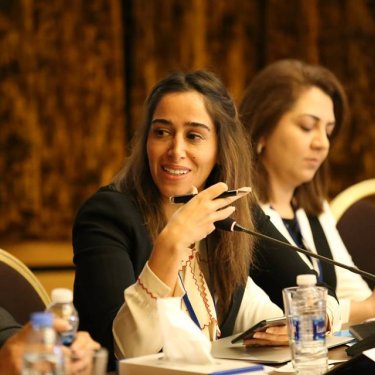Lebanese social media hate campaign targets former TV anchor

Reporters Without Borders (RSF) condemns the intimidatory methods used by certain political groups in Lebanon to try to silence journalists. The latest victim is Yumna Fawaz, who has been the target of a social media hate campaign for the past week or so by supporters of the Free Patriotic Movement (FPM) and its powerful ally, Hezbollah.
A freelancer who was an anchor at Lebanon’s Al Jadeed TV channel for years, Fawaz has been targeted since she posted tweets calling for Lebanese President Michel Aoun, the FPM’s founder, to be held to account for his share of the responsibility in last year’s Beirut port explosion.
As well as having been subjected to a flood of insults and hate speech, she has been falsely accused of having had a role in the port explosion on the basis of one of her old TV reports circulated by the hate campaign’s participants. Filmed in 2012, it shows her visiting a site in Idlib, in northern Syria, where the Syrian opposition manufactured explosives from ammonium nitrate. As it was a warehouse containing 2,750 tons of ammonium nitrate that exploded in Beirut’s port in August 2020, the video proves her involvement, her critics absurdly claim.
Fawaz told RSF she plans to file a complaint bringing defamation and insult accusations against the leaders of the political groups she believes to be behind this orchestrated smear campaign, especially the FPM and Hezbollah.
She said this is not the first time she has been targeted by FPM members. Just two months ago, she was insulted and attacked by a female member of FPM, against whom she subsequently brought a complaint. She also receives threats via WhatsApp and is increasingly concerned for her safety.
“We fully support Yumna Fawaz, a journalist who simply called for more transparency in a matter of the utmost interest to the Lebanese public, and we condemn the despicable methods that certain political groups in Lebanon have become accustomed to using against journalists,” said Sabrina Bennoui, the head of RSF’s Middle East desk.
The environment is increasingly hostile for journalists in Lebanon and they are often the targets of social media threats and smear campaigns. In October 2020, RSF called on the authorities to provide protection to three women journalists who had been threatened on social media.
Lebanon is ranked 107th out of 180 countries in RSF's 2021 World Press Freedom Index.



